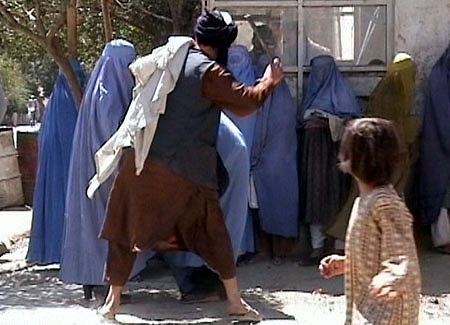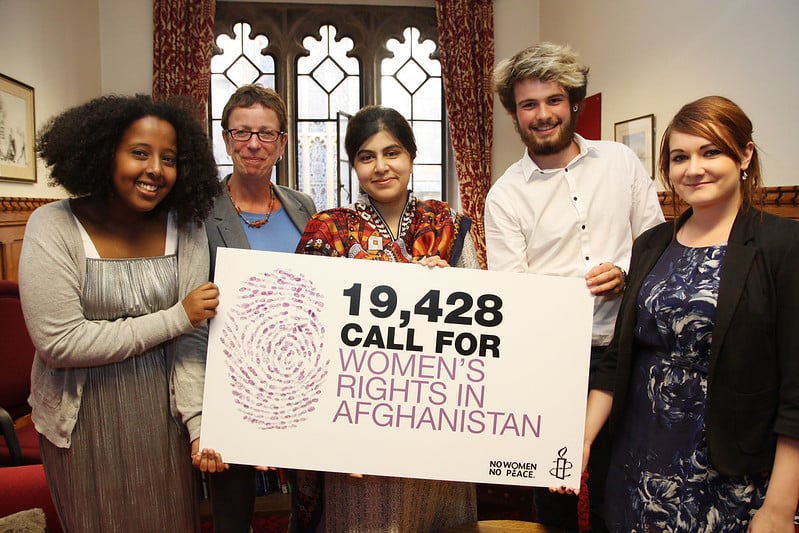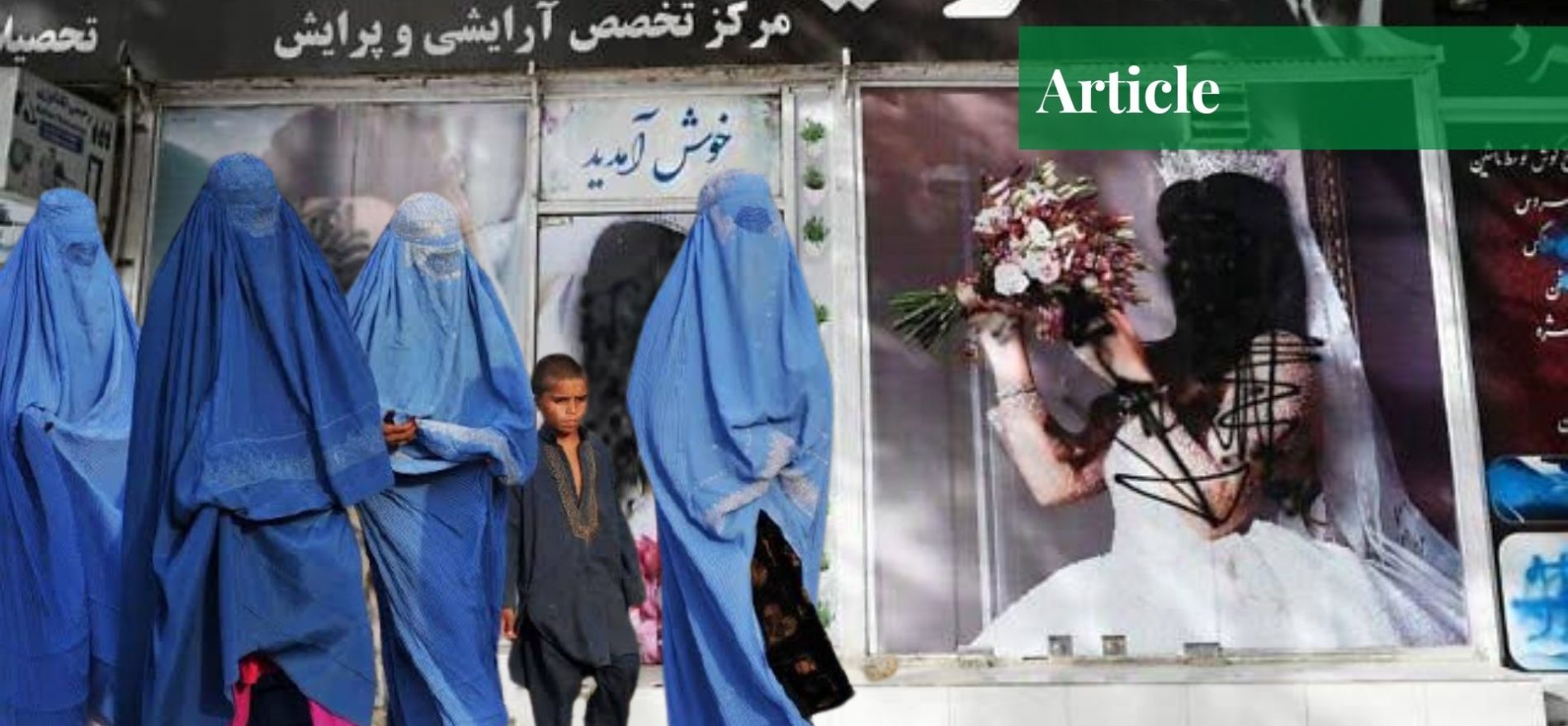Ms. Alina Fayaz is currently pursuing a Bachelor's in International Relations from National Defence University, Islamabad.
Introduction
Afghanistan has been occupied for about 40 years. The US invasion that followed the Soviet incursion has constantly been pushing the country back on its journey for success. The political instability of the country is creating a situation of turmoil in the region. The economic and political instability has been affecting the country, raising questions about the future of women in Afghanistan.
During the Soviet invasion, women suffered the damage of war and lack of access to educational and health facilities. Later, during the rise of the Taliban, women were coerced back into their traditional gendered role which was exacerbated further by marginalizing women and girls. Today, women in the West have been given sufficient rights to stand together with men while The women of Afghanistan still face restrictions, oppression, and discrimination, leading to social deterioration.
Implications of the US Withdrawal for Afghan Women
A big concern has arisen after the US withdrawal, what will be the fate of the women of Afghanistan? The fate of women’s rights in Afghanistan hangs in balance after the withdrawal of US troops. Even though the women of Afghanistan have not been a part of the war directly, the collateral damage cannot be neglected when the disproportionate loss changes their lives.
The security studies even demand gender-based evaluation of wartime. Gender-neutral analysis under these circumstances will not provide an effective solution. The hope for the betterment or further deterioration of this situation depends on the civil war in Afghanistan.
Realistically speaking, the Taliban are clearly on the crest of a wave. The withdrawal of the US troops certainly announces the informal victory of the Taliban who remain deeply misogynistic. The existence of women will, thus, be shaped significantly by the Taliban. The forty years of war have affected women as well.
At the constitutional level, women’s rights in Afghanistan have been recognized in 2004, allowing institutional changes and power hierarchies to be challenged. Women demand their representation at negotiation tables for peace talks and have faced strong resistance. Not only during the conflicts, but the post-conflict peace process also calls for the active participation of women. The US spent around $780 million to promote women’s rights in Afghanistan, producing a generation that looks forward to women’s equality.
Women’s Rights in Afghanistan: Rising Uncertainty
The former Taliban regime denied women rights and subjected them to violence. The women were forced to stop working and were banned from educational institutions. They were also given strict punishments and were publicly penalized. However, the Taliban claim that women are enjoying all the significant rights “granted by Islam.”

Two-thirds of the women in Afghanistan are below the age of 25 and have never lived in the harsh atmosphere of the extremist Taliban regime. In the local communities of Afghanistan, patriarchy serves as a foundation for all social relations. The Taliban have been terrorizing women and they now are scared to live under their regime once again.
According to the International Rescue Committee (IRC), the immense uncertainty caused by the recent transfer of power has made Afghanistan the deadliest place for children and women. The intensifying uncertainty has raised the levels of domestic abuse, violence, and exploitation of women and girls, increasing the chances of child marriages even more.
However, recently, the Taliban chief has banned forced marriages, but it is yet to be seen how effective this ban would be implemented. Banning forced marriages in a decree, the Taliban said that women should not be considered property and that both men and women should be treated equally. They further stated that a widow cannot remarry until 17 weeks have passed after the death of her husband.
The complex environment of Afghanistan has been suffocating women for long. To remedy this crisis, many NGOs have been working in the country. To aid gender equality many alterations have been done in the political landscape of the country. The Taliban government cannot be relied on to speak for women’s rights as its administrators have constantly rebuffed the demands of women’s rights activists.

Women’s Rights under Taliban Rule
Women have been trying for the past two decades and have successfully gained some seats in the legislature and other offices. However, for the women in tribal areas, the situation has not changed much.
George W. Bush, a former US president, showed his concern for the Afghan women and commented on Biden’s decision of withdrawing the US forces. He remarked, “It’s unbelievable how that society changed from the brutality of the Taliban, and all of a sudden – sadly – I’m afraid Afghan women and girls are going to suffer unspeakable harm.”
Together with the persistent discrimination of the Taliban, women’s rights will majorly get victimized by this process. It is said that gender-inclusive peace talks usually turn out to be more fruitful and last long. Anticipating the Taliban’s return to power, many firms and businesses employing women have started to make alternative plans. Thus, it can be seen clearly that women will be dragged back once again and the struggle will last longer.
Recently, these words have been put into action by the Taliban in a remote Afghan district, Saighan, where many men were forced to show their closets to determine the age and size of women in houses, particularly the widows of Afghan militants. Women then evacuated the district soon and went to the nearby regions.
The local mosques were ordered to make a list of all young women, wives of Afghan soldiers, and widows in an attempt to marry them to the Taliban. Addressing this, Professor Omar Sadr said, “It has happened before, in the 1990s when Kabul and places in the north fell—they abducted women and forced them to marry their rank and file.”
How Can the International Community Help?
Now the question arises, can the US help the Afghan women and make the situation better? Certainly yes, the withdrawal of the US troops will not make the US powerless. Provision of other leverages to the Taliban will give an upper hand to the government of the US. The criterion for economic aid by the US should be the provision of minimal standards of women’s rights in Afghanistan.
The US should also clarify that the failure to uphold this requirement will result in the abandonment of humanitarian and economic assistance by the US, which certainly will not favor Afghanistan. Thus, it can be a potential tool to shape the behavior of the Taliban, particularly in regard to girls’ education.
The international community can also take some firm decisions that will relatively benefit women in Afghanistan. The United Nations Security Council resolution in 2000, demands the protection of women and children under such circumstances. Thus, the prolonged vices against women need to be highlighted and internationally, the issue needs to be resolved.
Honor killing, rape, and other atrocities should be strictly punished, and international laws should be formulated that aim to protect women and help them feel safe. Considering all these optimistic hopes we should not ignore the fact that the undeclared conquest by the Taliban will not allow them to bough before any negotiations, neither during the peace talks with the former Afghan government nor with the international community.
The internal instability will certainly affect the women and they cannot be isolated from any armed conflict. The international community must fill the gap by aiding women and children. The Taliban claimed that they have changed but the officials remain skeptical about it. Moreover, it is yet to be seen how the two Taliban regimes will differ in treating women and children. As for now, they are more or less the same even after twenty years.
If you want to submit your articles and/or research papers, please check the Submissions page.
The views and opinions expressed in this article/paper are the author’s own and do not necessarily reflect the editorial position of Paradigm Shift.



















